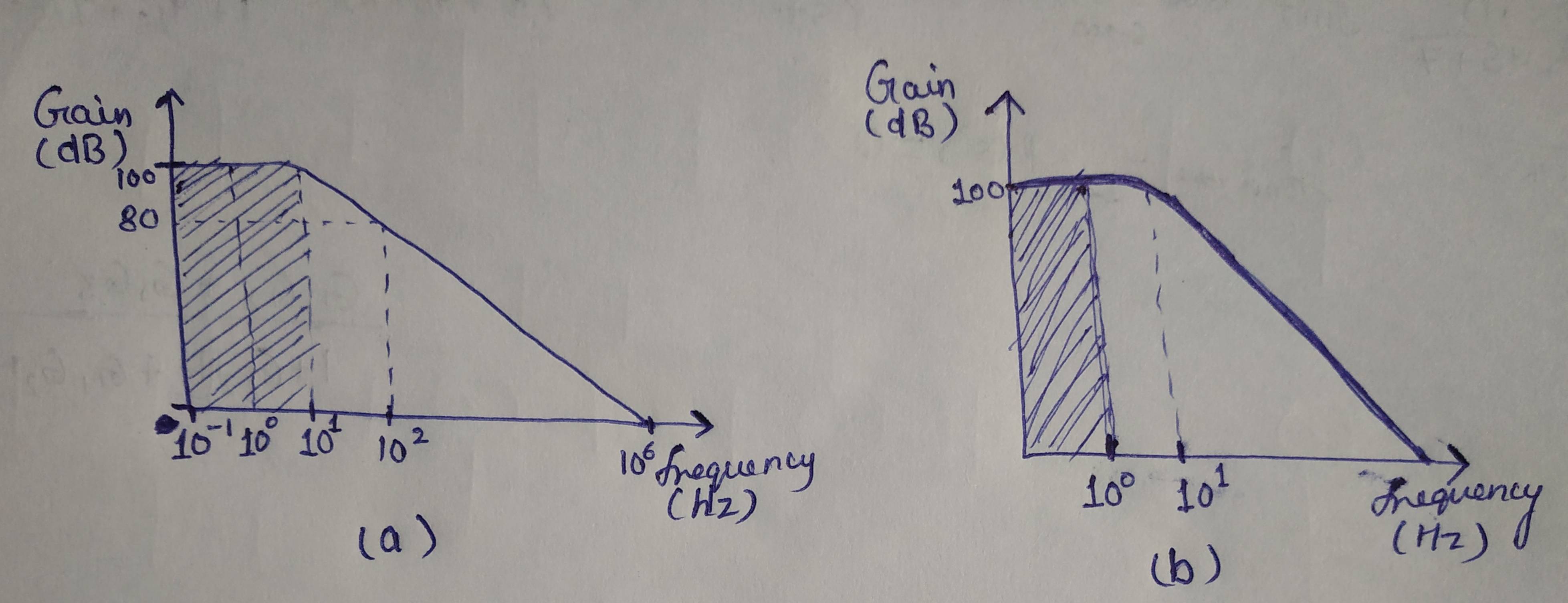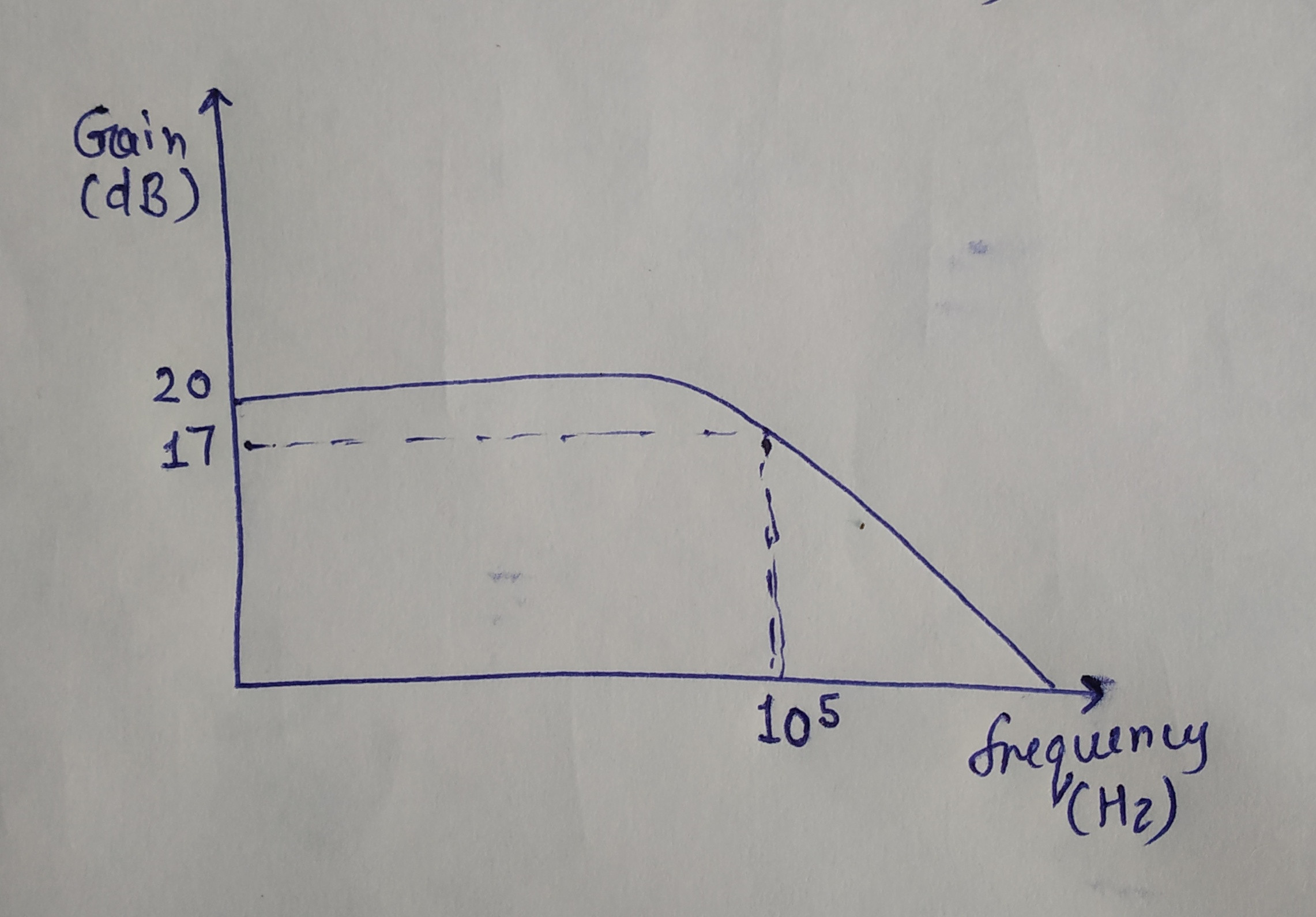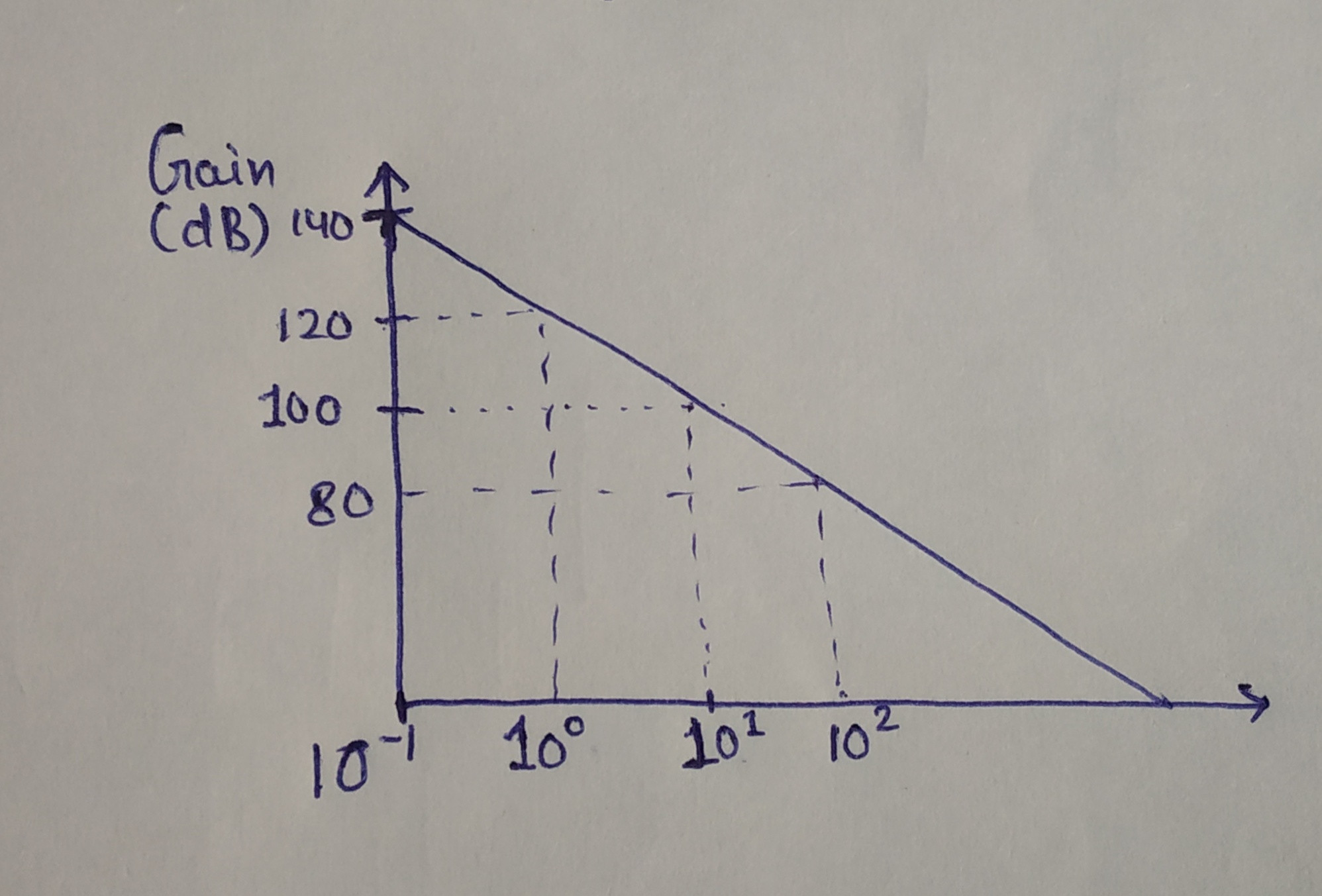The gain and bandwidth product of an ideal op amp is always constant. This statement seems to be true in the '-20dB slope' region. But this doesn't seem to be true for the low frequency region.
The two shaded regions below doesn't seem to represent the same gain bandwidth product.

I am not confused here with plot for gain at a particular bandwidth, which may seem as below and does not satisfy the gain bandwidth product (it should not) in the constant gain region.

What I think (I know I am wrong) why isn't the gain bandwidth product made something like this:

Can anyone please explain where am I wrong in my reasoning?
